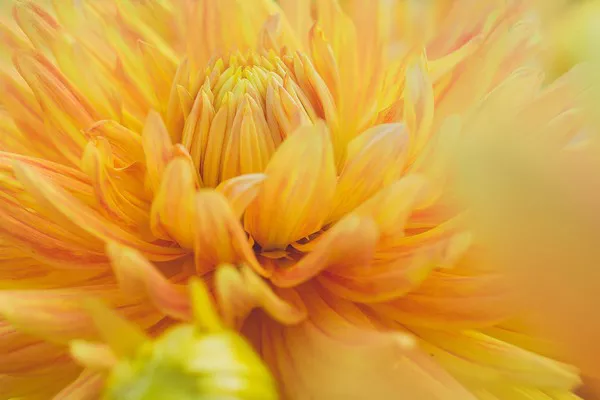As spring arrives and flowers bloom, so does the season of allergies. For many individuals, pollen allergies bring more than just sneezing and itchy eyes—they can also trigger debilitating headaches. In this article, we’ll explore the link between pollen allergies and headaches, delve into the characteristics of pollen allergy headaches, discuss how to distinguish them from other headache types, and provide management strategies to alleviate symptoms and improve quality of life.
The Connection Between Pollen Allergies and Headaches
Pollen allergies, also known as hay fever or allergic rhinitis, occur when the immune system overreacts to pollen particles in the air. When pollen is inhaled, the body’s immune response kicks in, releasing histamines and other chemicals that cause allergy symptoms such as sneezing, congestion, and itchy eyes. In some individuals, pollen exposure can also trigger headaches.
Characteristics of Pollen Allergy Headaches
Pollen allergy headaches can vary in intensity and duration, but they often share certain characteristics:
Location: Pollen allergy headaches typically manifest as a dull, throbbing pain that is centered around the forehead, temples, or sinuses. Some individuals may also experience pain in the cheeks or behind the eyes.
Type of Pain: The pain associated with pollen allergy headaches is often described as pressure-like or sinus-related. It may feel like a band tightening around the head or a constant ache that worsens with pollen exposure.
Associated Symptoms: In addition to headache pain, individuals with pollen allergies may experience other allergy symptoms such as sneezing, nasal congestion, watery eyes, and fatigue. These symptoms can exacerbate headache discomfort and impact overall well-being.
Distinguishing Pollen Allergy Headaches from Other Headache Types
While pollen allergy headaches share similarities with other types of headaches, such as tension headaches and sinus headaches, there are key distinguishing features to consider:
Tension Headaches: Tension headaches are often triggered by stress, muscle tension, or poor posture. They typically manifest as a mild to moderate, steady ache that affects both sides of the head. Unlike pollen allergy headaches, tension headaches are not typically accompanied by allergy symptoms such as sneezing or nasal congestion.
Sinus Headaches: Sinus headaches are caused by inflammation or congestion in the sinuses, often due to allergies or sinus infections. They are characterized by pain and pressure in the cheeks, forehead, or bridge of the nose, along with other sinus-related symptoms such as facial tenderness and nasal discharge. While pollen allergy headaches may share some similarities with sinus headaches, they are not always accompanied by acute sinus symptoms.
Management Strategies for Pollen Allergy Headaches
Managing pollen allergy headaches involves a combination of avoiding pollen exposure, using medications, and implementing other remedies to alleviate symptoms:
Avoiding Pollen: Minimize pollen exposure by staying indoors on high-pollen days, keeping windows closed, using air purifiers with HEPA filters, and wearing sunglasses and hats when outdoors. Showering and changing clothes after being outside can also help remove pollen from the hair and skin.
Medications: Over-the-counter and prescription medications can help alleviate allergy symptoms and headache pain. Antihistamines, decongestants, nasal corticosteroids, and pain relievers such as ibuprofen or acetaminophen may be recommended. It’s essential to consult with a healthcare provider before starting any new medications, especially if there are pre-existing medical conditions or concerns about potential side effects.
Other Remedies: Nasal saline rinses, steam inhalation, and nasal irrigation with a neti pot can help clear nasal passages and relieve congestion. Using saline eye drops can soothe irritated eyes, while applying a cool compress to the forehead or sinuses may provide temporary relief from headache pain.
Importance of Seeking Medical Advice
While pollen allergy headaches are often manageable with home remedies and over-the-counter medications, it’s essential to seek medical advice when necessary:
Severe or Persistent Symptoms: If headache pain is severe, persistent, or accompanied by other concerning symptoms such as fever, vision changes, or neurological deficits, prompt medical evaluation is warranted. These symptoms may indicate a more serious underlying condition that requires further assessment and treatment.
Difficulty Managing Symptoms: If pollen allergy symptoms and headaches are interfering with daily activities, work, or school, it’s important to consult with a healthcare provider. They can provide personalized treatment recommendations, including prescription medications or allergy immunotherapy, to better manage symptoms and improve quality of life.
Pre-existing Health Conditions: Individuals with pre-existing health conditions such as asthma, chronic sinusitis, or immune disorders may be at higher risk of complications from pollen allergies and associated headaches. It’s essential for these individuals to work closely with healthcare providers to develop a comprehensive management plan tailored to their specific needs and medical history.
Conclusion: Empowering Individuals to Manage Pollen Allergy Headaches
Pollen allergy headaches can be a challenging aspect of seasonal allergies, but with the right strategies and support, individuals can effectively manage symptoms and improve their quality of life. By understanding the link between pollen allergies and headaches, recognizing the characteristics of pollen allergy headaches, and implementing management strategies such as avoiding pollen exposure and using medications, individuals can take control of their health and well-being.
It’s important to seek medical advice when necessary, especially if symptoms are severe, persistent, or difficult to manage. Healthcare providers can offer guidance, support, and personalized treatment recommendations to help individuals navigate pollen allergy season with confidence and resilience. With proactive management and a focus on self-care, individuals can minimize the impact of pollen allergy headaches and enjoy the beauty of the seasons to the fullest.
[inline_related_posts title=”You Might Be Interested In” title_align=”left” style=”list” number=”6″ align=”none” ids=”6844,6841,6838″ by=”categories” orderby=”rand” order=”DESC” hide_thumb=”no” thumb_right=”no” views=”no” date=”yes” grid_columns=”2″ post_type=”” tax=””]
































